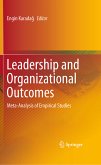Drawing on multi-disciplinary analyses by 37 researchers, the book presents an integrative assessment of the characteristics that those in the current youth cohort are likely to bring to the workplace. The focus is on those born after 2005 with an examination of the implications of this cohort being raised from birth immersed in an increasingly omnipresent digital environment which extends far beyond social media. The authors see the coming 'digital tsunami' as creating disruptive effects across major elements of our economy and even society however optimistically conclude that the digital environment and the development of 21st Century skills in schools will equip the next generation with essential competencies, attitudes, social skills and work goals. The key to harnessing the potential of this generation will be to modify current human resources and workplace practices which will mean sweeping away much of the 'boomer' legacy that this cohort has imprinted on organizations. To assist leaders, the book goes beyond presenting a rich portrait of who these youth may become by providing practical recommendations for the changes that need to start now in order to position the organization to benefit from what they will bring. As the astute strategic leader knows: objects in the future can be closer than they appear.
Dieser Download kann aus rechtlichen Gründen nur mit Rechnungsadresse in A, B, BG, CY, CZ, D, DK, EW, E, FIN, F, GR, HR, H, IRL, I, LT, L, LR, M, NL, PL, P, R, S, SLO, SK ausgeliefert werden.









